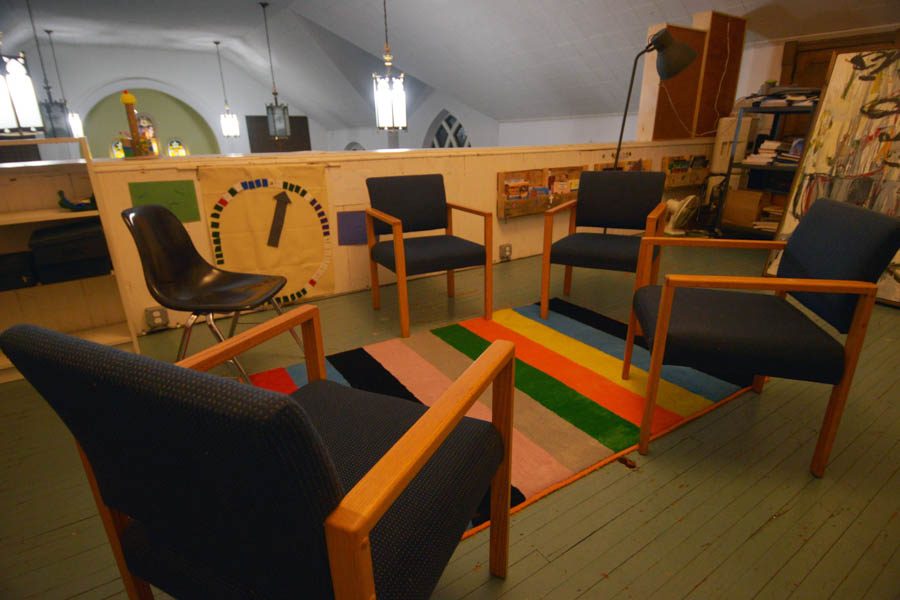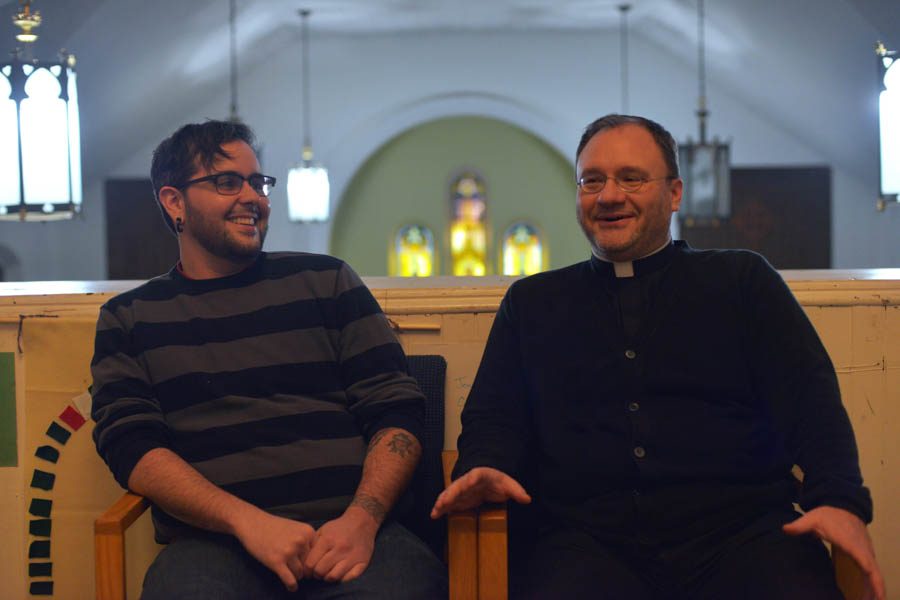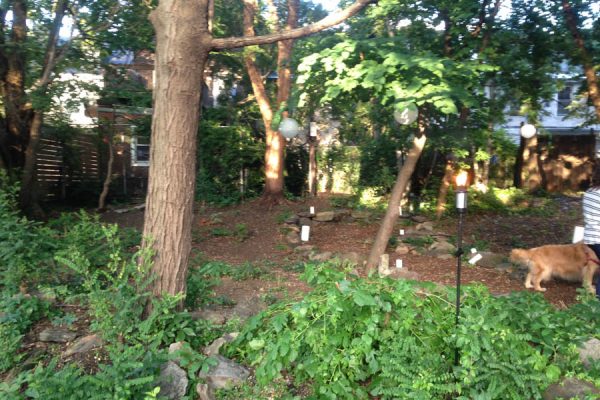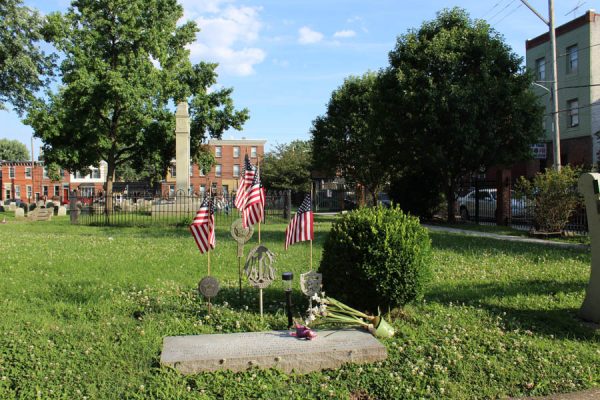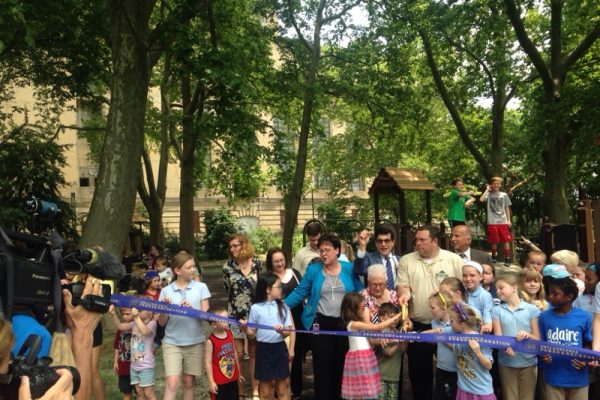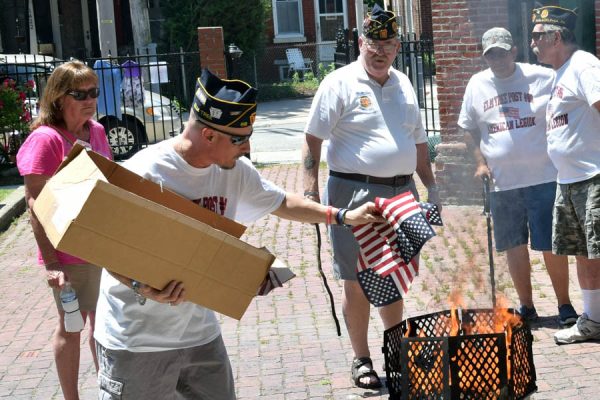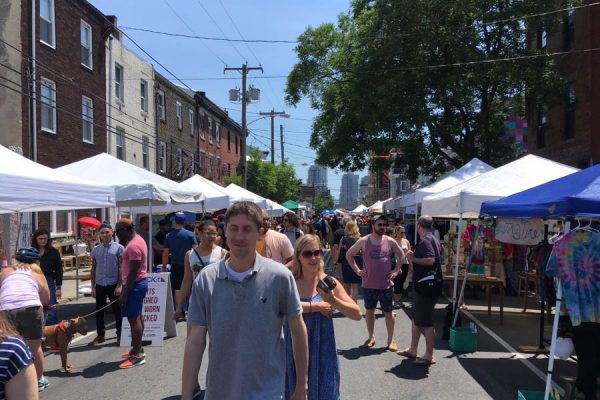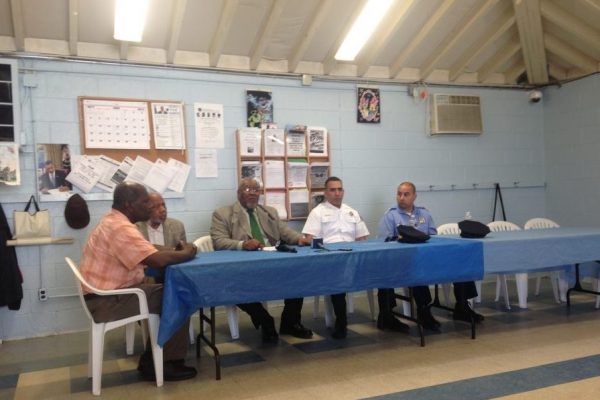Irreconcilable Differences: Spiritual InQueery’s Struggle to Breach the Gap Between Christian and Queer
Once a month Jonathen Wurzel posts on Facebook and puts up fliers to prepare for a meeting of individuals who are both Christian and queer. Spiritual InQueery, as it is called, has met on the last Tuesday of every month at the Evangelical Lutheran Church of the Atonement (1542 E. Montgomery Ave.) in Fishtown since spring 2016. The meetings strive to preach a different interpretation of what we are told the Bible says about the LGBTQ community so that the two societal polar opposites will start to come together.
As a queer and transgender Christian, Wurzel has always dealt with a tug of war between his faith and gender identities. He compares it to having two hats, but only being able to wear one at a time. Equally and overall, they are a constant reminder of Christianity’s rejection of the LGBTQ community, as well as the LGBTQ individuals’ scarred relationship with faith. Wurzel, who is now in the seminary, decided he wanted to do something about it.
But if the attendance at the meetings is a telling factor, Fishtown, and Philadelphia in general, might not be ready to bridge that divide between sexual orientation and religion. When asked how well the past couple of meetings had gone in mid-November, Wurzel, organizer and leader of Spiritual InQueery, simply said, “Dead. Absolutely dead.”
“I don’t have many queer friends that I can talk to about spirituality or a lot of Christian friends that can relate to my queerness. There are plenty of queer Christians out there but it’s not something that everyone really wants to talk about,” Wurzel said.
Friends of Wurzel recognize his two identities and often ask if he’s “out” at church. His answer is always an unapologetic yes, and there is a reason for that. In conversation, Atonement’s “approach” toward Wurzel has been indifferent. He even goes so far as to call it “great”— at church, he’s just another face in the crowd.
It was Atonement’s embrace of the LGBTQ community that led Wurzel to start posting in forums to gauge interest in having starting up Spiritual InQueery. He quickly found out that there wasn’t a group out there like this in the area.
“The several people that I do know who are queer and Christian don’t have a place to just talk about it. So I was like, why don’t we make one?” Wurzel said.
Noah Helper, pastor at Atonement, and the church’s congregation do not shy away from the LGBTQ community. In fact, the church takes it several steps toward championing the community and the causes they believe in. For example, Drag Bingo, which started in 2014, is a revered annual tradition. Drag Queen host, Pearl E. Gates, who has acted in the past as the event’s emcee, and people from the church, many of whom are long-time residents of the neighborhood, pack up their rolly red Coleman coolers with alcohol and, not surprisingly, cheer “You bitch!” at the winner. Proceeds of Drag Bingo have gone to benefit those affected by the Orlando nightclub shooting along with other queer organizations.
“When we first started doing the Drag Bingo, I think it was our drag queen who asked, ‘How [is the church community] going to feel about me being around?’” Pastor Noah, who is openly gay, recalls. “I told him, ‘They don’t care, and not in an apathetic way. They just don’t need to figure out a policy to deal with you.’”
The lighthearted fun and success of Drag Bingo set the precedent that this church could handle a serious conversation about faith and sexuality, and opened up the possibilities for Spiritual InQueery. These monthly meetings take place in the church and are split into two parts. First is the educational part, which is a bible study. Passages like the Sodom and Gomorrah narrative, known for its “man shall not lay with a man as he does a woman” passage and semi-apocalyptic ending, are broken down and examined. That passage, as Wurzel interprets it, is actually about poor hospitality.
But there are more issues surrounding the Bible than just literal interpretation. “There are translation mistakes, there are people who will use these and take the English translation as the true translation. There are a lot of things in the Old and New Testament speaking out against general promiscuity, but nothing about homosexuality in particular,” he adds.
Wurzel continues, “People want to be informed about it. There are people who grew up here and it’s not even a matter of interpretation; they just heard wrong. They spent how long of their life struggling with that identity or identities and they want to know what’s actually happening here or what’s actually being said.”
The second part of every Spiritual InQueery meeting is an open discussion either about the passage being studied, coming out to family or any other struggles centered around a Christian and/or queer identity as it relates to everyday life.
“I think that’s the other side of the reconciliation, saying, ‘Look, it doesn’t show up often in Scripture, but here is a glimpse that maybe here we are right there.’ That, for me, is kind of the bookends — there’s a whole lot in between on reconciliation,” Pastor Noah says.
In a landmark decision in 2009, the Evangelical Lutheran Church in America (ELCA), which holds the highest level of authority in the church, held a Churchwide Assembly that addressed sexuality and released a social statement claiming that the ELCA is “united in opposing all forms of violence or discrimination and is committed to welcoming all people, regardless of sexual orientation, and their families into our congregations.”
However, the 2009 decision was not sweeping and all-encompassing. Each individual church could (and can still) decide for themselves whether they wanted to follow these new, inclusive rules.
For Atonement, it was never a question whether they would accept the decision. “It caught everyone off-guard,” Pastor Noah said. “We moved from people who are homosexual and self-understanding, to gay and lesbian, to LGBTQ really fast.”
Since 2014, Atonement has been a part of the Reconciling in Christ program that helps allow Lutheran communities to publicly welcome people who identify as a member of the LGBTQ community.
But today the question Pastor Noah and Wurzel keep asking themselves about Spiritual InQueery is, “Why isn’t this working?”
“We don’t know if it’s because it’s only monthly or if it’s the wrong part of the month. I would imagine it’s also us having to advertise it a little bit better, although we’re not certain that just broadcasting it on Facebook or the newspaper as an advertisement is the way to connect with the community,” Pastor Noah admitted. “It is that people seem to like that there’s a place to do this, so we’re trying to figure out where the disconnect is.”
In his experience, Wurzel has encountered more resistance from the queer community for being Christian than from the different Christian churches he has been a part of across the United States in his adult life. More often than not, the LGBTQ community stands at the ready for the next inevitable attack on their personal choices. However, it’s not fair, or possible, to assume the entire LGBTQ community feels the same exact way about religion.
“I think Spiritual InQueery is part of the cycle-breaking. It’s saying, no, not all Christians,” Pastor Noah says.
Wurzel and Pastor Noah feel a conversation is being lost for all of those who don’t fit neatly in either corner. In order to have the conversation with audiences that belong in either group, they feel that Spiritual InQueery could give those questioning these identities the proper tools to open up the conversation. Including the passages and support to get past radical Christians, like the Westboro Baptist Church, and other skeptics critics and opinions.
“If somebody’s ready to reconcile with that in themselves, then sure, we will help with that,” Wurzel said. “I think that in a broader sense it’s important to reconcile — to break that cycle and equip people with the knowledge to do that.”
Wurzel has reached out to LGBTQ groups across the city to get the word out about Spiritual InQueery. These groups will identify that Spiritual InQueery exists, but will politely decline further involvement, he claims. The fact that the group meets in a church is also foreboding, as they have commonly stood as a physical reminder of rejection. While the pat on the back doesn’t go unnoticed, those who are queer and Christian are.
“I think some of that is exhaustion. You don’t want to defend yourself for just being yourself. It’s not necessarily two identities you get to choose. You shouldn’t always have to be on the defense about that,” Wurzel said. “I also think fear is a part of that. I think people are afraid of a louder voice than theirs.”
The louder voice in queer and Christian relations survives in the conversation focused on what the Bible has to say about all of it. According to Wurzel and Pastor Noah, this stems largely from the strict agendas of the churches people have grown up in. For them, who both experienced “conservative” churches in their early lives, they recognize that this is largely a societal issue. It also looks to be the biggest challenge for Spiritual InQueery.
“It’s like in Orwell’s book ‘1984’, the double think: You believe one thing but you have to believe out loud another one,” Pastor Noah said. “There are people who wrestle with that and they have to create their own space to figure out how to participate in this identity and also have this other one I’ve been told conflict. We have to double think but you don’t have to do that here.”
